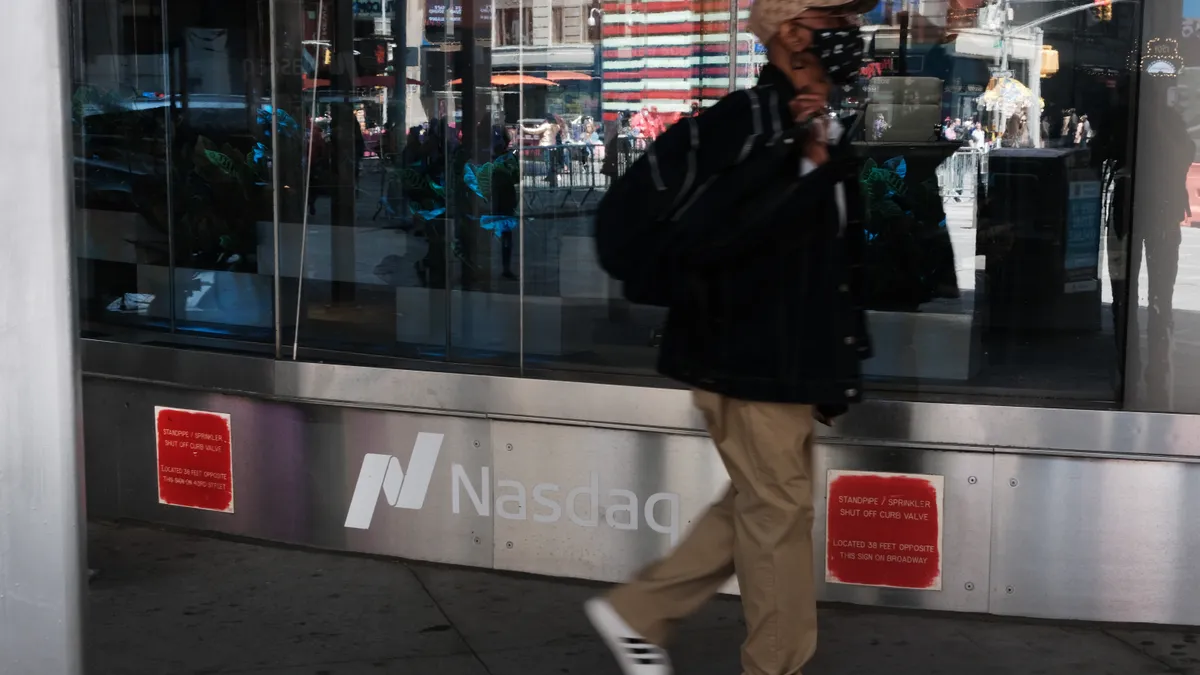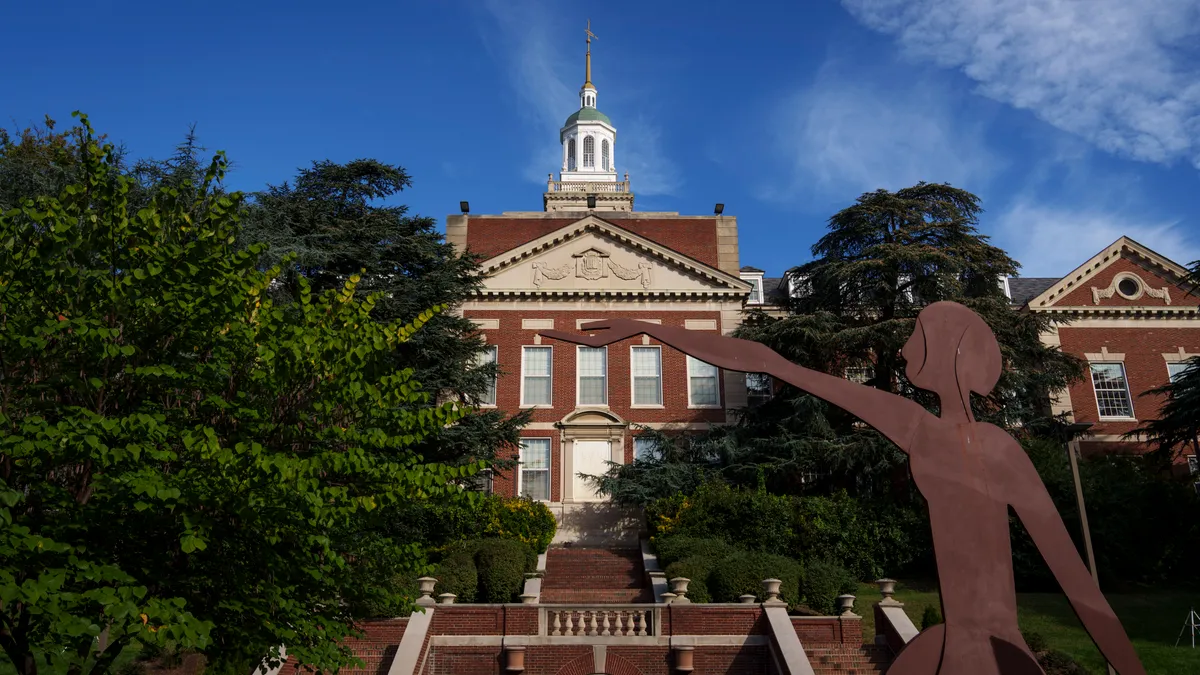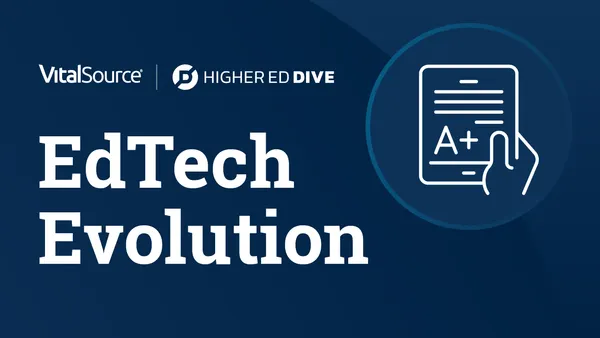Dive Brief:
- Zovio faces delisting from the Nasdaq Stock Market's Global Select Market if it cannot boost its stock price by the end of October, according to a disclosure from the education technology services company that used to be the parent of the University of Arizona Global Campus.
- Nasdaq flagged the Arizona-based company May 3 because its stock price had dropped below $1 per share for 30 straight business days, falling out of compliance with Nasdaq's Global Select Market's requirements. Zovio has 180 days to boost its closing share price to $1 or more for 10 straight business days, it said in a Friday filing with the U.S. Securities and Exchange Commission.
- If the company is unable to raise its share price, it can apply for listing on another exchange, the Nasdaq Capital Market. It would have to meet listing requirements. Nasdaq describes the Capital Market as being for companies that seek to raise capital, whereas it says Zovio's current home, the Global Select Market, "has the highest initial listing standards of any exchange in the world."
Dive Insight:
The possible delisting is another blow for a company and related university that have suffered a string of setbacks.
This year, a California court levied $22.4 million in civil penalties against Zovio for misleading students when it owned Ashford University, the for-profit institution the company sold to the University of Arizona to create what is currently known as the University of Arizona Global Campus. That institution, UAGC, has remained Zovio's largest client under a contract that has the company providing enrollment and marketing services in exchange for a portion of the university's revenue.
In April, UAGC lost access to military education benefits for about three weeks when it moved its headquarters from California to Arizona before Arizona approved the institution for benefits from the U.S. Department of Veterans Affairs. Nearly 10% of UAGC's 28,000 students receive financial aid from the VA.
The University of Arizona has also said it is working to coordinate the two organizations' operations and take more responsibility for UAGC after the online college was threatened with loss of access to federal financial aid. That raised concerns from faculty members who worried the relationship harms the public flagship's credibility and could drain its resources.
Yet those events don't appear to have triggered a sudden plunge in Zovio's stock price. Shares trended steadily downward since last year.
Therefore, the potential delisting likely means little for Zovio's financial future, said Phil Hill, a partner at ed tech consultancy MindWires. It's more important for public sentiment, Hill said.
"Where it's going to have an impact is, it's going to add more fuel to the fire for the people who are really upset at the University of Arizona leadership for signing this deal," Hill said.
The University of Arizona referred a request for comment to Zovio. The company did not respond Monday to an email and telephone call seeking comment.
More broadly, the possible delisting matters for other companies considering deals similar to the one that created UAGC, Hill said. For-profit companies may still be weighing a nonprofit conversion, or a structure that converts their colleges to nonprofit status and then has them selling services to the newly minted nonprofit, sometimes under the umbrella of a preexisting tax-exempt institution.
Purdue University's 2017 deal to acquire Kaplan University and create Purdue University Global blazed that path. U of Arizona tried to follow with UAGC.
But Purdue's Kaplan deal might be an exception to the rule for how such transactions generally work out, Hill said.
"Purdue Global was very difficult. They had to pump in hundreds of millions of dollars in marketing to turn around that organization and get it to break even," Hill said. "If you look at Zovio, what it's showing is the fact that you can have a really colossal failure just as easily."
Zovio is an aberration in the market in its own way, Hill said. It's suffering from years of past troubles that don't dog other online program managers, or OPMs.
Yet it can still reveal downside risk from deals between public institutions and for-profit companies, Hill said. And it comes at a time when the Biden administration has taken on a strict regulatory stance toward for-profit higher ed, and when federal policymakers are scrutinizing the OPM market.
"You could argue this isn't a typical OPM and it shouldn't affect the rest of the market," Hill said. "Except you have a lot of people who want to really change the market, change regulations. Again, this is fuel for the fire."












